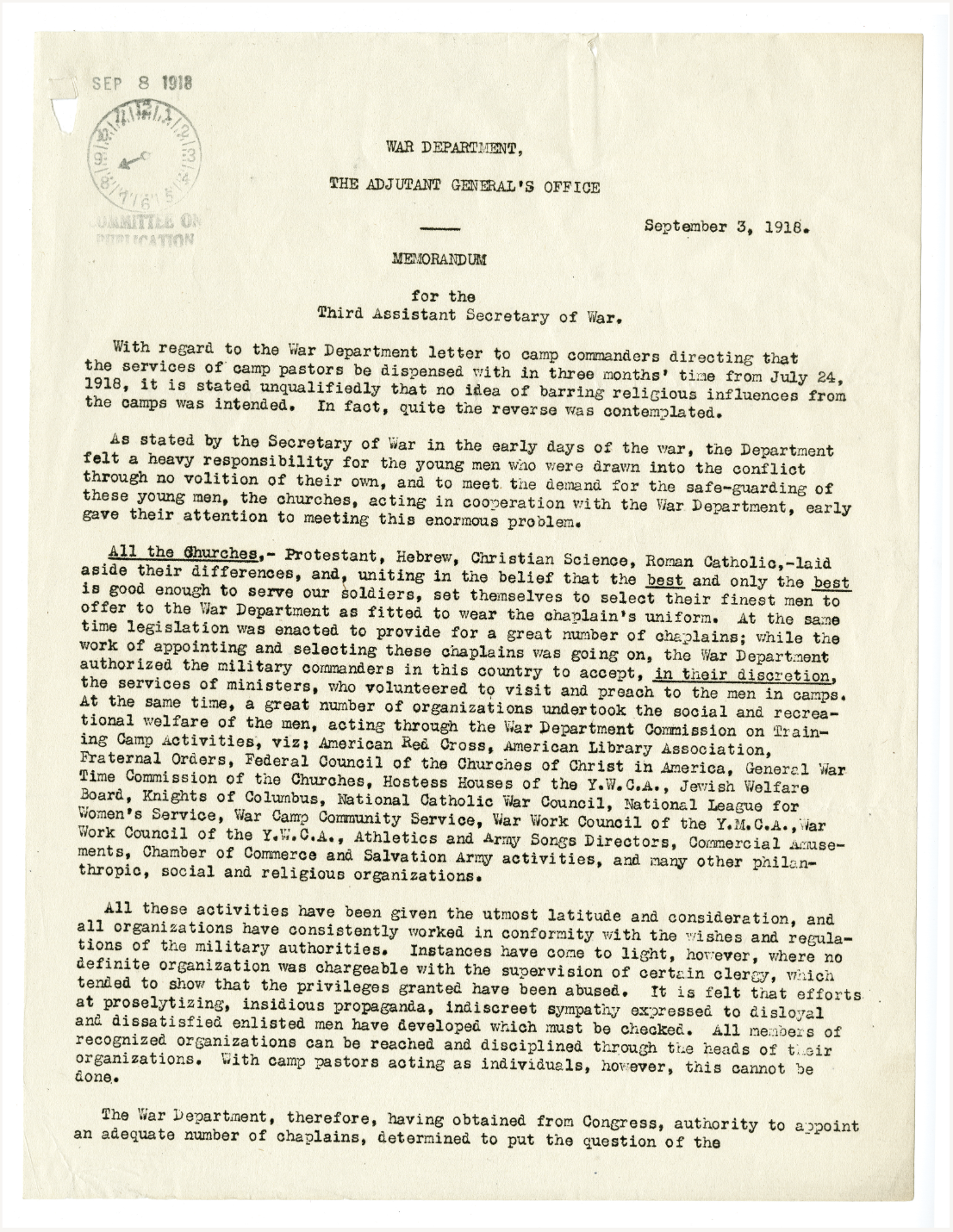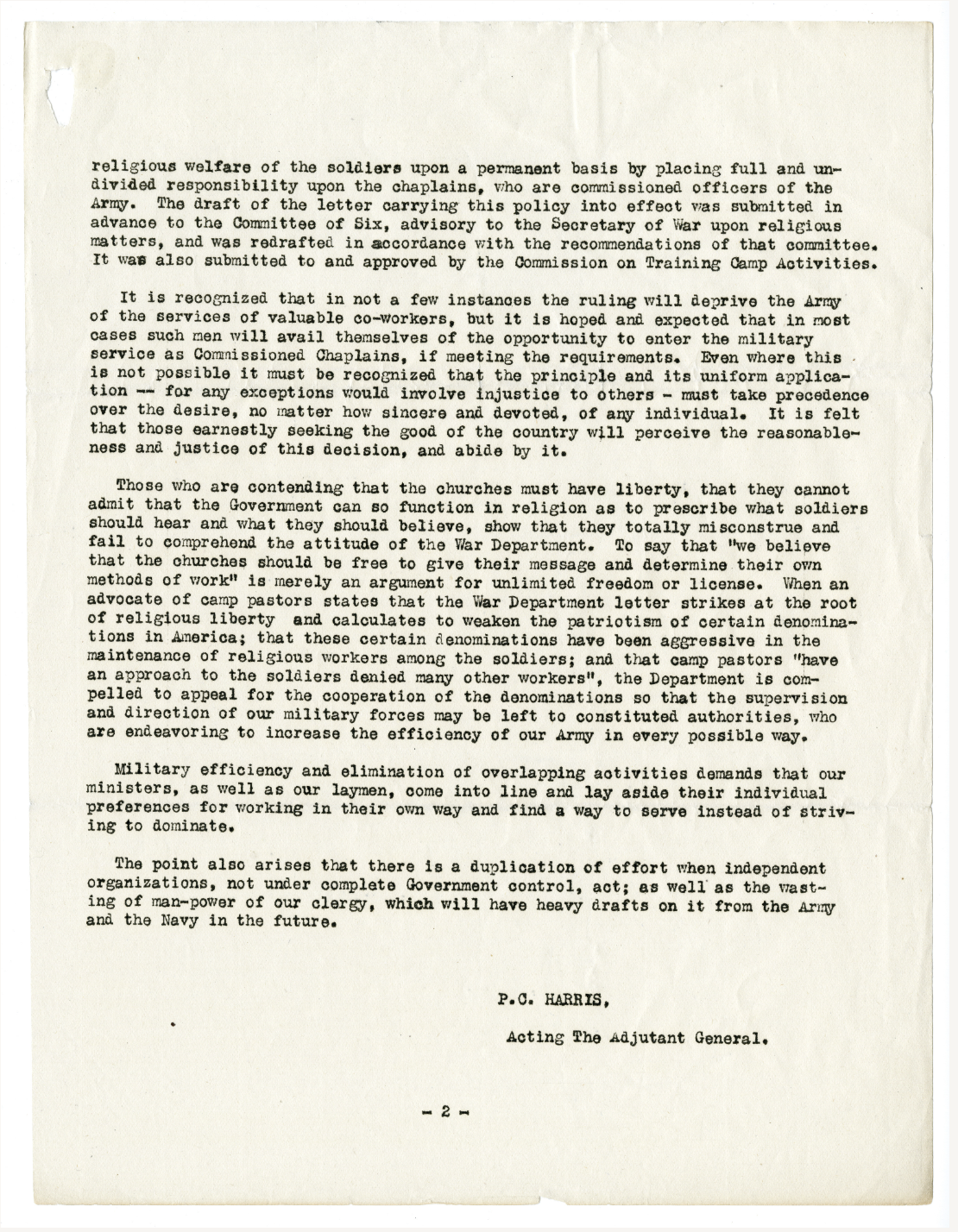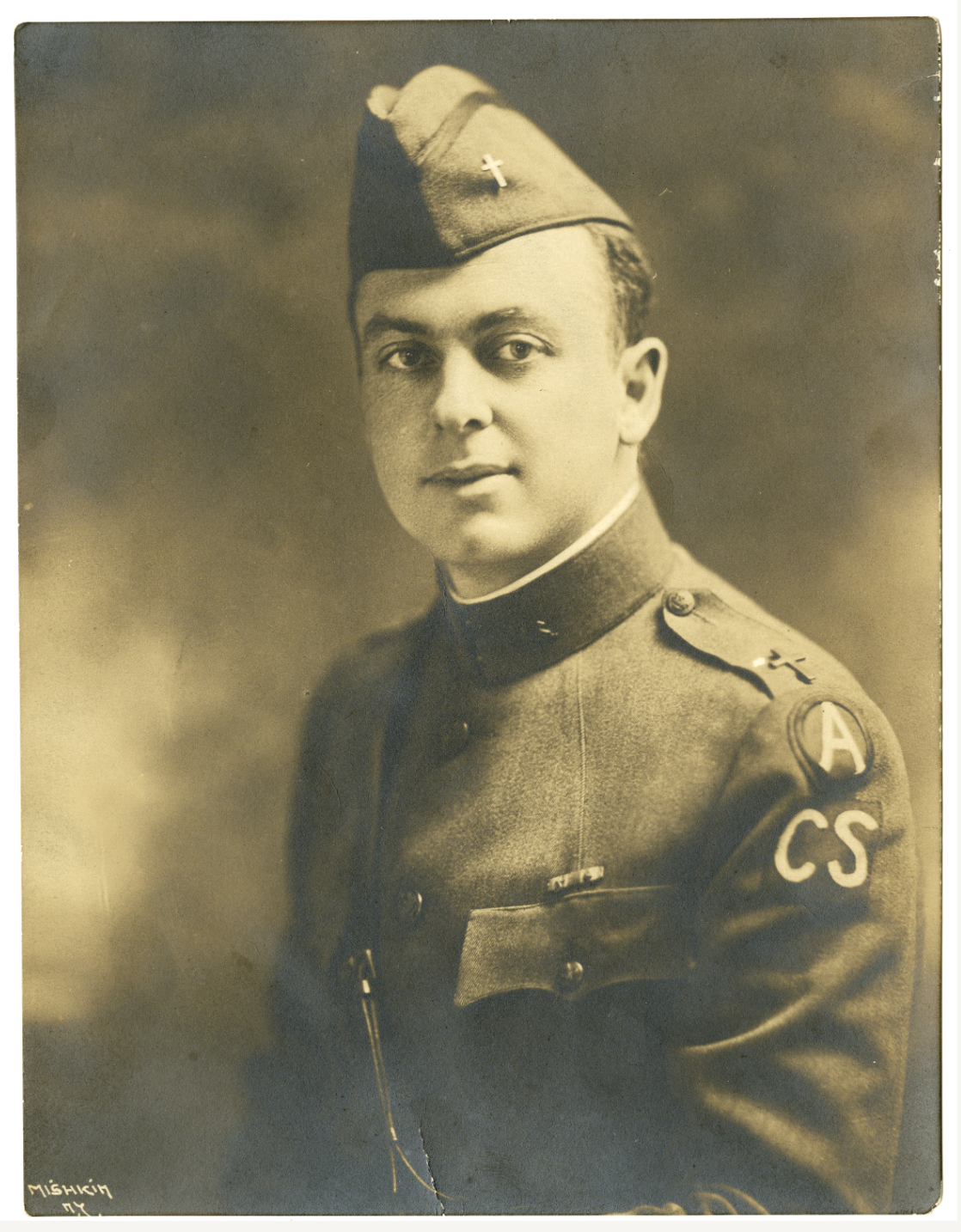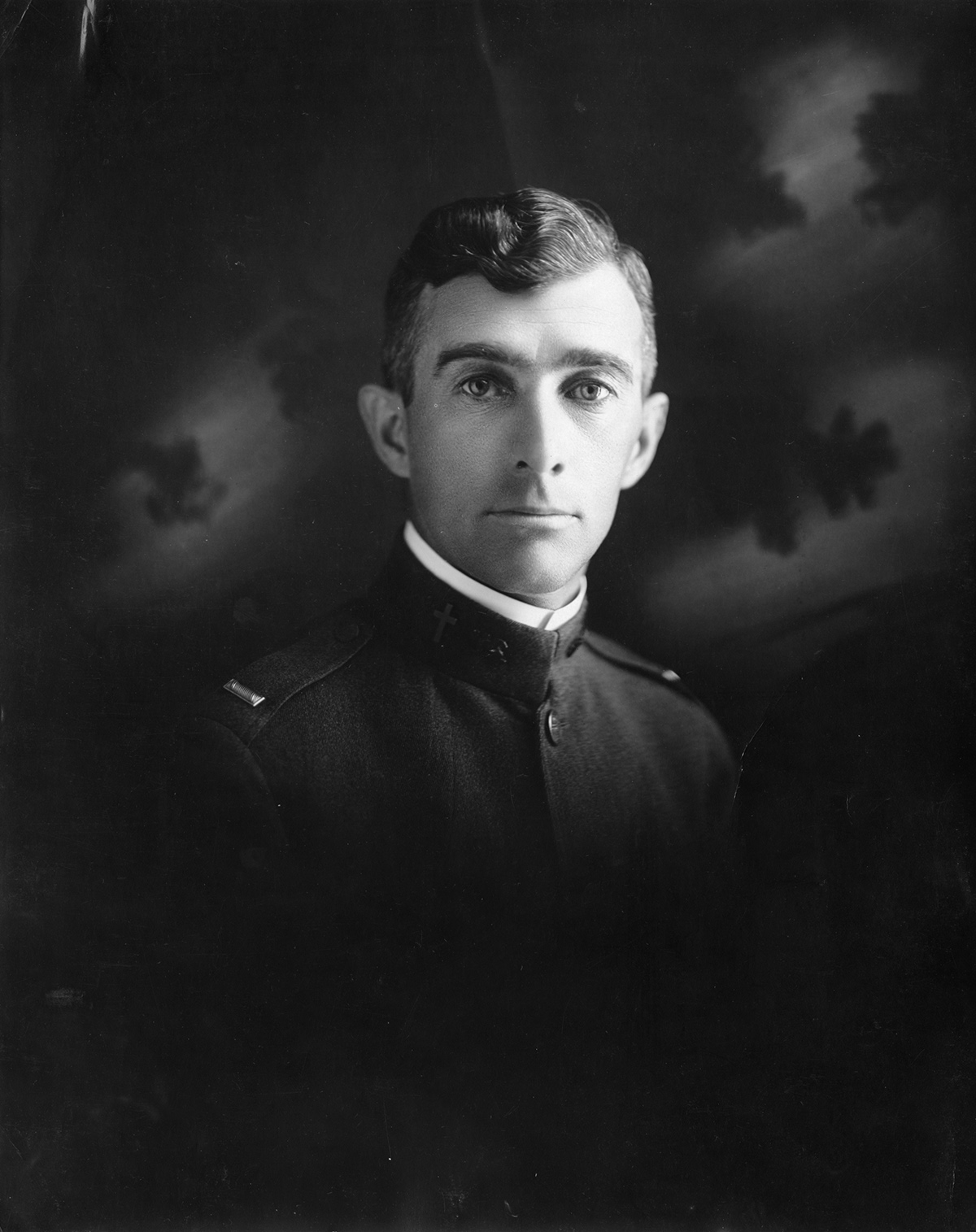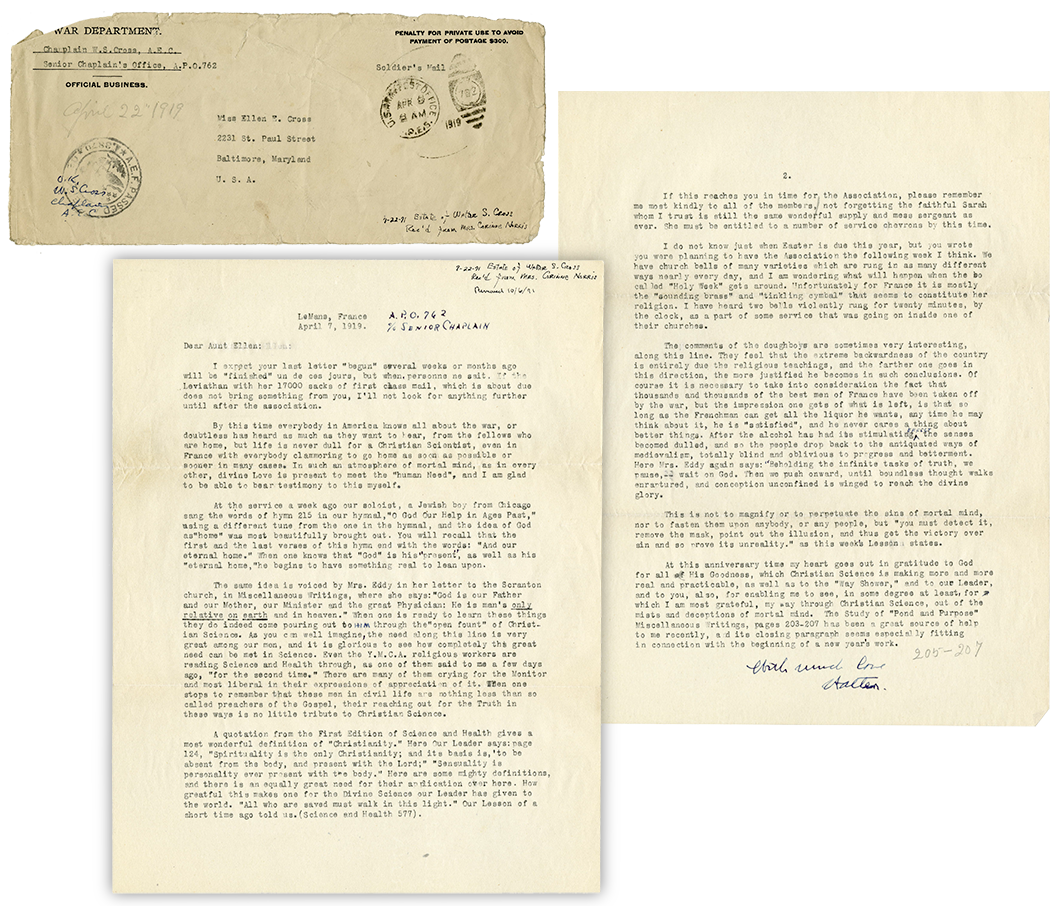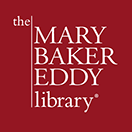
100 Years of Christian Scientists in Military Chaplaincy

“The appointment of a Christian Science chaplain…is taken as a significant change in the attitude of the public toward the faith of the followers of Mrs. Eddy.”
—“From the Press” [From an editorial in the Haverhill (Mass.) Gazette], Christian Science Sentinel, April 20, 1918
On October 26, 1917, the US Congress called for 20 chaplains-at-large, to be selected from Jewish, Christian Scientist, Eastern Catholic, Latter-day Saint, and Salvation Army adherents. This marked an effort to achieve greater denominational representation.
SCRAPBOOK, WORLD WAR I MEMORIES, c. 1917
This scrapbook is attributed to chaplain Walter S. Cross. Assembled during World War I, it contains newspaper clippings about the war, poetry, and Christian Science in the US. Other pages include postcards and photographs evidently taken in France, depicting soldiers, medical personnel, and notable landmarks.
Walter S. Cross Papers 1915–1951, Mary Baker Eddy Library Special Collections
Click the image to view the scrapbook
Click the image to view the scrapbook
Ten Christian Scientists served as chaplains during World War I. While some had concerns about their ability to minister to men of diverse faiths, Christian Science chaplains frequently distinguished themselves in the eyes of their commanding officers and those they served with.
Major General Peter Charles Harris (1865–1951) discusses the benefits of Christian Scientists serving as military chaplains:
Studio portrait of Martin F. Jackson, n.d. P09192. Unknown photographer.
Martin F. Jackson (1877–1927) was the first Christian Science chaplain to serve on the front lines in World War I. Appointed as a chaplain in November 1917, he served in the US Army’s 78th Division in France and Germany. He was the first to receive permission to put the initials “CS” on his uniform, in an effort to help other soldiers identify him as a Christian Scientist.
In his book Memories from Oversea, Jackson explained the value of a chaplain’s work in the field: “While it was almost impossible to keep in touch with all these boys, scattered as they were through a whole division, still, the moral effect of knowing there was someone within reach in case of need, was a great comfort.”
